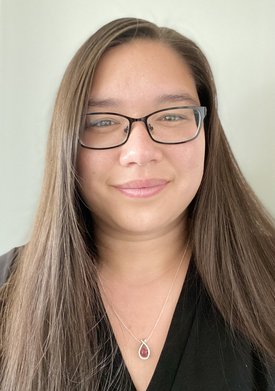
Nicole McClellan
Degree Year: 2022
Q: When did you join the M.S. in Forensic Science and when did you graduate?
A: I joined FNSSI in the fall of 2020 and graduated in spring of 2022.
Q: Why did you choose the M.S. in Forensic Science at Syracuse University?
A: I chose SU's M.S. in Forensic Science program because of the wide variety of classes offered. When I first came to the program, my interests were all over the place ranging from MDI to toxicology to national security. Because FNSSI has such a large selection of classes to choose from, I was able to learn about each of my interests and, in effect, decide which discipline I wanted to pursue.
Q: Who did you do your internship/research and how was it?
A: I did my thesis research and internship at the Onondaga County Center for Forensic Sciences in the Drug Chemistry section. It was a great experience as it gave me the opportunity to shadow the chemists and assist with validations/verifications, all while working on my own research project.
Q: Where are you working at the moment?
A: I work as a Forensic Chemist at the Onondaga County Center for Forensic Sciences.
Q: How do you apply the knowledge acquired in the M.S. in Forensic Science in your work?
A: My classes provided me with a solid foundation on the principles/theories of different disciplines and instrumentation used in forensics. I am now able to use that knowledge on a daily basis as I do casework.
Q: What was a major advantage of having done your master's at Syracuse that has helped you at your current position?
A: I'd say one of the biggest advantages of doing my Master's at SU was having professors who work/worked in the field. It was very helpful having mentors I could turn to that could provide real-world advice and insight.
